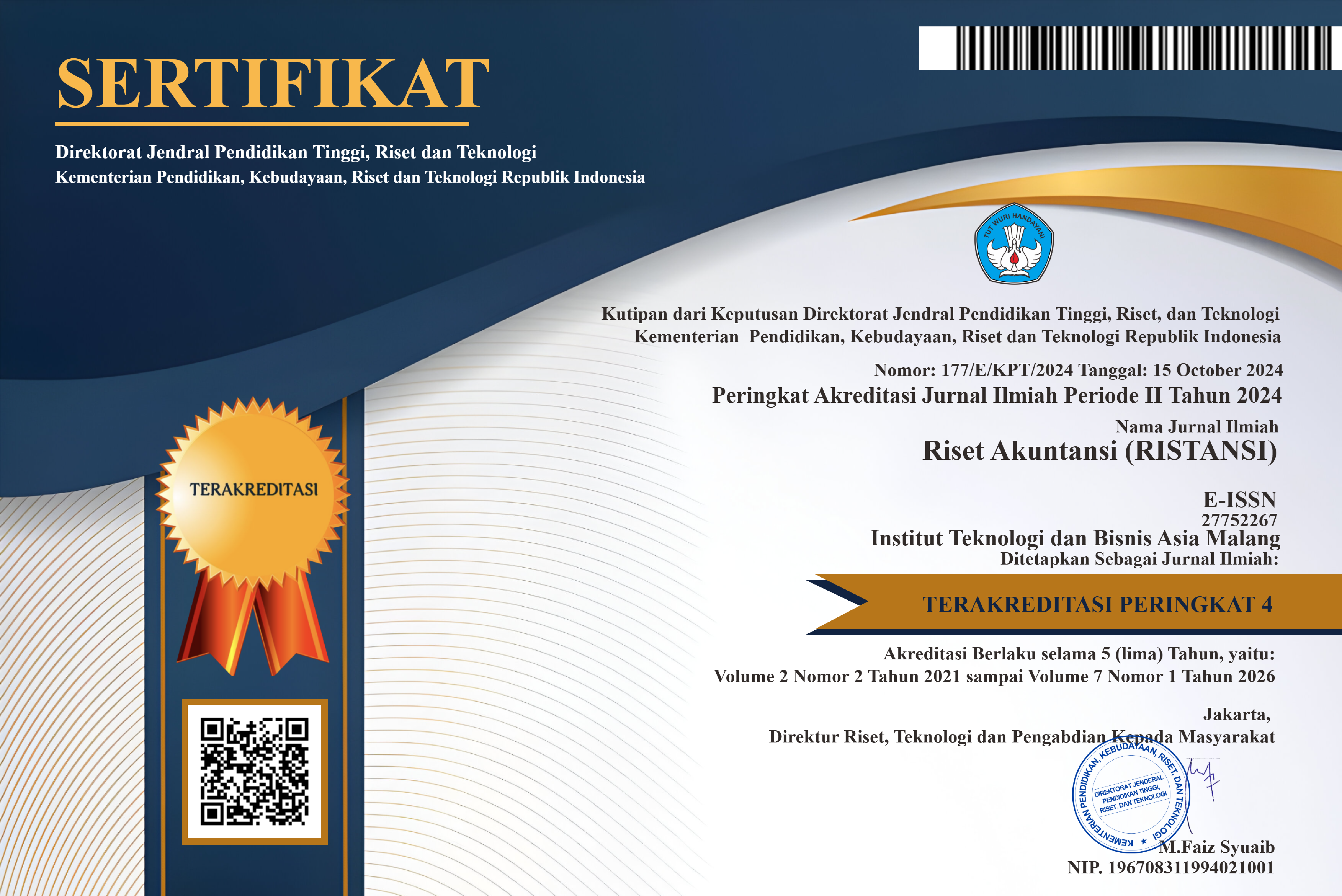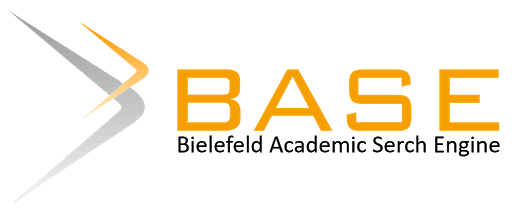| ACCREDITATION |
Publication Ethics
Publication Ethics RISTANSI: Accounting Research based on the Committee on Publication Ethics (COPE) listed in the COPE Best Practice Guidelines for Journal Editors. We have personalized this COPE according to our journals such as: Authorship, Complaints, Conflict of Interest Policy, Publication Ethics (Author, Editor, and Reviewer), Disclaimer, Copyright, Publishing Fee, About this Publishing System, Open Access Policy, Process Peer Review, and Disclaimer. For details on this etiquette, you can find an explanation below.
Publication ethics - Author
- Reporting Standards: Articles resulting from community service must be able to present accurate data based on the activities carried out and supported by sufficient details and references to allow others to cite the work.
- Originality and Plagiarism: Authors must ensure that they have written a completely original work, and if the author has used the work and/or words of others, then this has been properly cited or cited.
- Multiple, Redundant or Concurrent Publications: An author may not generally publish a manuscript depicting essentially the same community service article in more than one journal or major publication. Submitting the same manuscript to more than one journal at the same time constitutes unethical publishing behavior that is not accepted.
- Source Acknowledgment: Proper acknowledgment of the work of others should always be given. Authors should cite publications that were influential in determining the nature of the reported work.
- Disclosure and Conflict of Interest: All authors must disclose in their manuscript any financial or other substantive conflict of interest that could be construed to influence the results or interpretation of their manuscript. All sources of financial support for the project must be disclosed.
- Fundamental errors in published work: When an author discovers significant errors or inaccuracies in his own published work, it is the author's obligation to promptly notify the journal or publisher's editor and cooperate with the editor to retract or correct the paper.
Publication Ethics - Editor
- Fair Play: Editors evaluate manuscripts at all times for their intellectual content without regard to the race, gender, sexual orientation, religious beliefs, ethnic origin, nationality, or political philosophy of the authors.
- Confidentiality: Editors and editorial staff must not disclose any information about submitted manuscripts to anyone other than the authors, reviewers, prospective reviewers, other editorial advisors and appropriate publishers.
- Disclosure and Conflicts of Interest: Unpublished material disclosed in submitted manuscripts may not be used in the editor's own research without the written consent of the author.
- Editor's Criteria: Editors, both local and international, must have, a paper or manuscript published in the Journal, especially on the topic of Community Engagement. An editor can help the reviewer to provide input on the manuscript in addition to the results of the review by the reviewer.
- Publication Decisions: The editorial board is responsible for deciding which articles submitted to the journal will be published. Validation of the work in question and its importance to researchers and readers should always drive such decisions. Editors may be guided by the discretion of the journal's editorial board and limited by applicable legal requirements regarding defamation, copyright infringement and plagiarism. The editor may confer with other editors or reviewers in making this decision.
Publication Ethics - Reviewer
- Contributions to Editorial Decisions: Peer reviewers assist editors in making editorial decisions and through editorial communication with authors can also assist authors to improve papers.
- Reviewer Criteria: Both local and international reviewers must have a paper or manuscript that has been published in the Journal, especially on the topic of Community Engagement. And also the reviewer has published an article with the same theme as the manuscript that will be reviewed. Or the reviewer has a community engagement program with the same theme.
- Standard of Objectivity: Reviews should be conducted objectively. Personal criticism of the author is inappropriate. Referees must express their views clearly with supporting arguments.
- Confidentiality: Any manuscript received for review must be treated as a confidential document. They may not be shown or discussed with others except as permitted by the editor.
- Disclosure and Conflicts of Interest: Privileged information or ideas obtained through peer review must be kept confidential and not used for personal gain. Reviewers should not consider manuscripts in which they have a conflict of interest resulting from a competitive, collaborative, or other relationship or connection with the author, company, or any institution associated with the paper.
- Source Acknowledgment: Reviewers must identify relevant published work that has not been cited by the author. Any statements whose observations, derivations, or arguments have been previously reported must be accompanied by relevant citations. Reviewers should also call the editor's attention for any similarities or overlaps between the manuscript under consideration and other published papers of which they are personally aware.
- Review Period: Reviewers must review the manuscript within 1 to 2 months (maximum). And the number of reviewers for each manuscript is 2 reviewers (minimum) and 5 reviewers (maximum).
- Manuscript Review: Editors must ensure that each manuscript is initially evaluated for authenticity. Editors must regulate and use peer review fairly and wisely. Editors must describe their peer review process in information to authors and also indicate which sections of the journal were reviewed. Editors should use appropriate peer reviewers for articles under consideration for publication by selecting people with adequate expertise and avoiding those with conflicts of interest.













